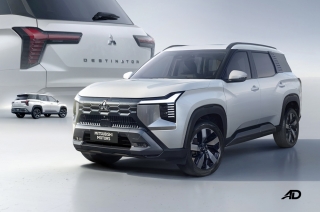
Gasoline prices are still on the rise with the global supply for them slowly dwindling. With that in mind, motorists all over the world are all looking for the best back for their back when it comes to the fuels they use for their cars. When filling up at the station, there are usually three kinds of gasoline on offer, standard, premium, and super-premium. Different car brands will offer you different names to accompany these products, but what determines their pricing is the research octane number (RON), and the higher the number, the more expensive fuel is. Fuel companies often advertise that higher octane allows more performance to be extracted out of the engine. To an extent, they’re right, but not totally.
What you need to know about fuel octane

Octane is a hydrocarbon that can be found in gasoline. The chemical helps keep the engine’s combustion cycle predictable. Gasoline engines have spark plugs that ignite the air-fuel mixture to push the piston down with explosive force. Timing is key and making sure your fuel does not ignite while the piston is on the way up is important for engine reliability and power.

A higher octane rating is required because an engine produces heat that could cause pre-ignition. Another factor is the compression ratio, which is a measure of how much the air is squeezed when the piston is at its highest point. The byproduct of this compression is heat, and can also detonate fuel before it’s expected to; in fact, diesel engines ignite their fuel through this principle. Octane makes gasoline less volatile, by making it more heat-resistant. Only a spark plug should be able to ignite the fuel, not ambient temperatures.
Is higher octane always better?

This then begs the question is using a higher octane fuel is better for your car and why are there 91-93 RON fuels. The simple answer to this is that most gasoline-powered cars don’t need anything higher. Car manufacturers know what’s best for the machine they designed, hence they give a recommendation to the minimum RON that you need. If your engine is rated for 91 RON, there is no monumental incentive for going premium because your engine simply doesn’t need it. You may experience a marginal gain, but it’s small—borderline negligible.
Unless your car is turbocharged, or a high-performance car, a higher-than-required octane rating won’t give you a substantial increase in power. The fuel doesn’t explode with more force, it withstands premature detonation more than a regular fuel does. Since there is no tangible benefit, that means that you’ll be wasting your money on high-octane fuel that your car does not need. So sorry to say, but your Mitsubishi Mirage will not benefit from premium fuels as a Toyota Supra can with its turbocharged inline-six.
When should I use high-octane fuel?

Only use high octane fuel when the manufacturer of your vehicle recommends it. If the minimum RON is at 95, don’t fill your vehicle with 91 octane fuel. Another exception can be made for cars that are heavily modified or tuned. A higher octane fuel is safer than a lower one because when going above the manufacturer’s rated power rating, then the engine produces more heat. For turbocharged cars, more air is forced into the combustion chamber, and so a higher RON is required. In short, if your car is performing outside of the manufacturer’s specifications with a modification to the ECU, then a more premium fuel is advisable. Or you can ask your tuner to tailor your car to run at a lower octane, at the cost of potential power gains.
Latest Features
-
Tire tread patterns: What they are and why they matter to your car / Tips & Advice
Tire tread patterns aren’t just for looks; they also determine traction, handling, and overall performance on the road.
-
Five things to check on your car before driving during the rainy season / Featured Article
Planning to drive in the rain? Make sure to inspect these five vital parts of your car before hitting the road.
-
What we can expect from the upcoming Mitsubishi Destinator / Featured Article
The Destinator debuts this July 23, and according to Mitsubishi, it’s more than just an XForce with extra seats.
Popular Articles
-
Cheapest cars under P700,000 in the Philippines
Jerome Tresvalles · Sep 02, 2024
-
First car or next car, the Ford EcoSport is a tough package to beat
Jun 18, 2021
-
Car Maintenance checklist and guide – here’s everything you need to know
Earl Lee · Jan 12, 2021
-
Most fuel efficient family cars in the Philippines
Bryan Aaron Rivera · Nov 27, 2020
-
2021 Geely Okavango — Everything you need to know
Joey Deriquito · Nov 19, 2020
-
Family cars in the Philippines with the biggest trunks
Sep 20, 2023
-
Head to head: Toyota Rush vs. Suzuki XL7
Joey Deriquito · Oct 28, 2020
-
Why oil changes are important for your car
Earl Lee · Nov 10, 2020
-
2021 Kia Stonic — What you need to know about it
Joey Deriquito · Oct 16, 2020
-
Top 7 tips for buying a used car in the Philippines
Joey Deriquito · Nov 26, 2020




